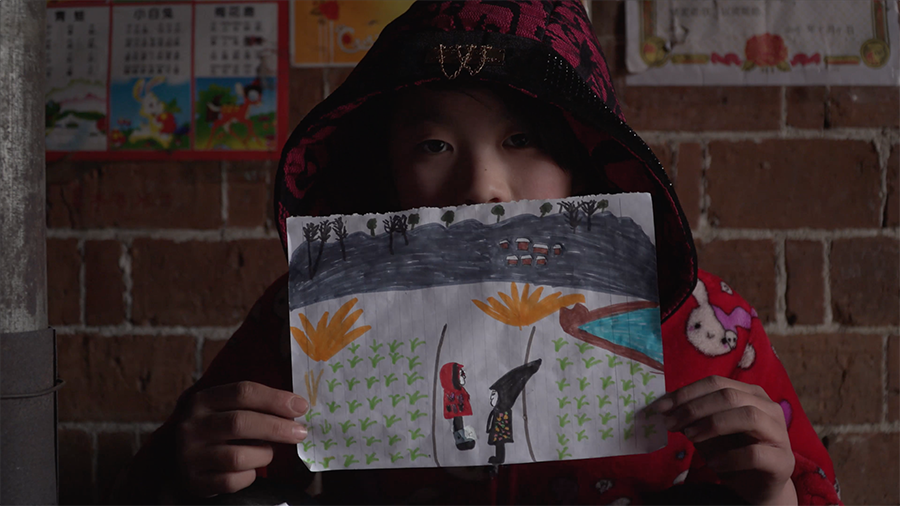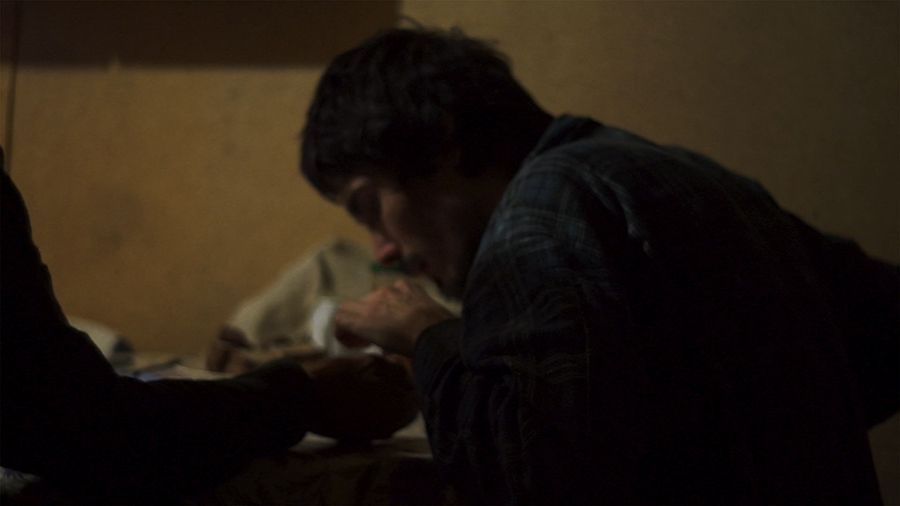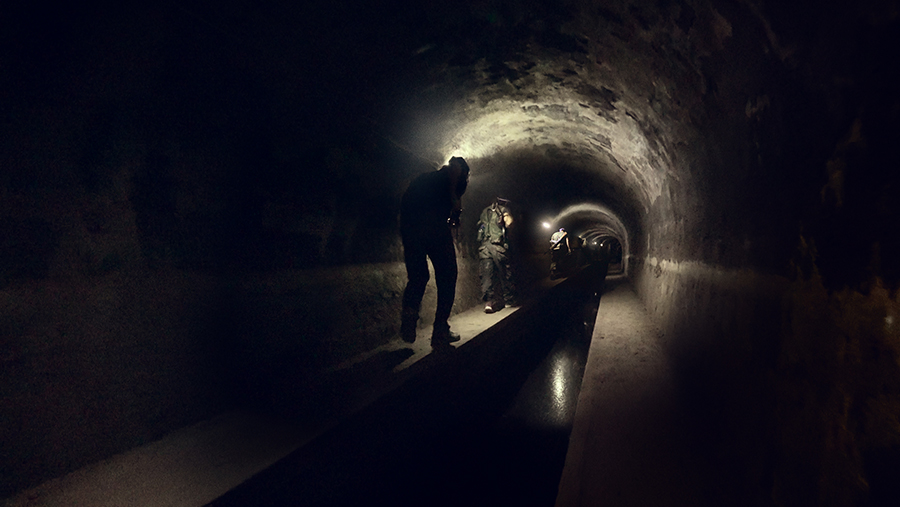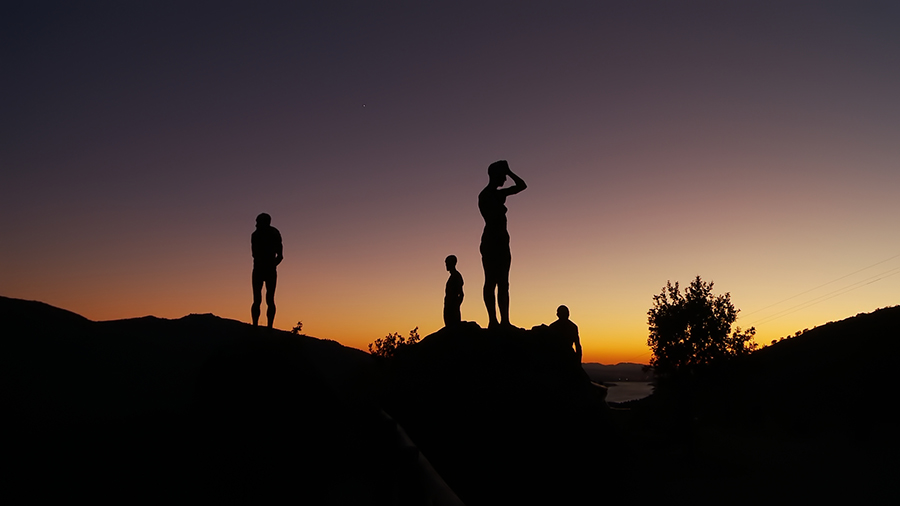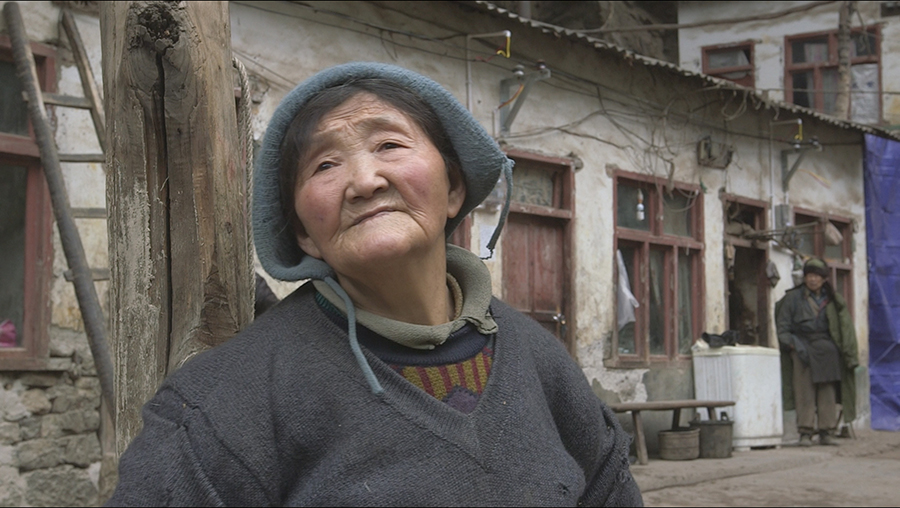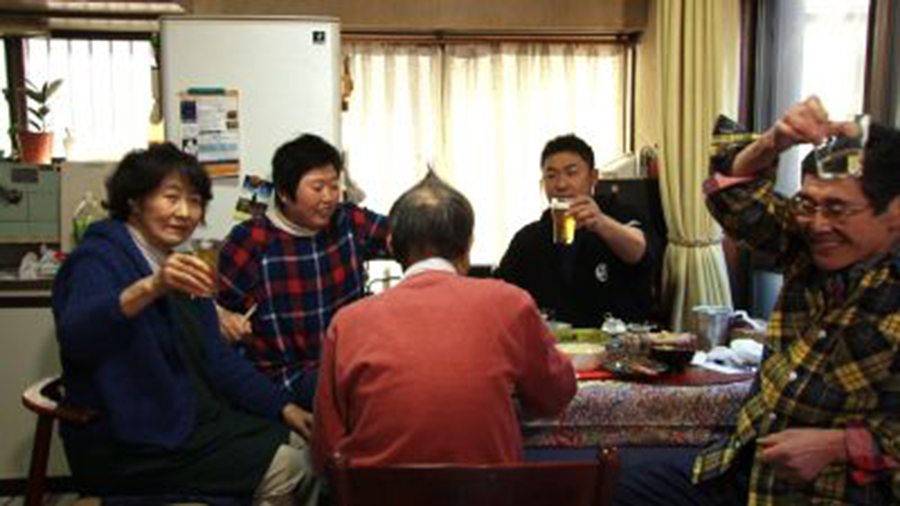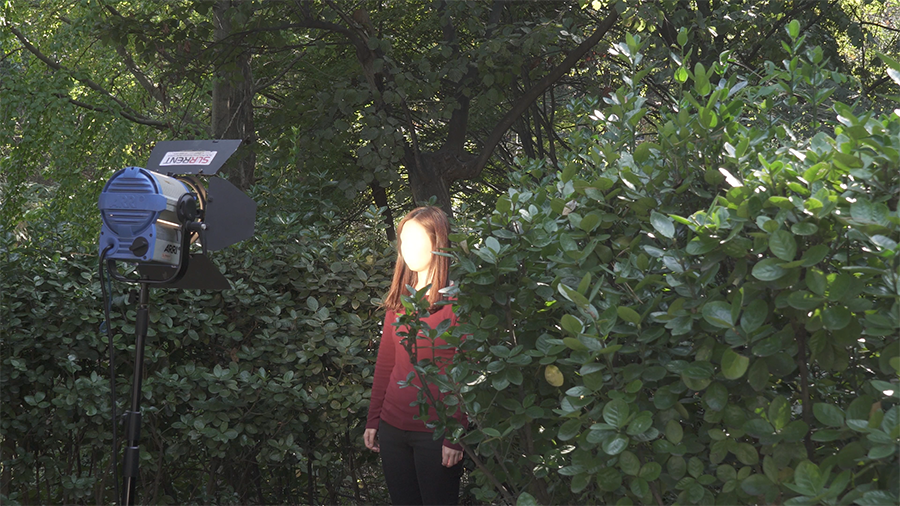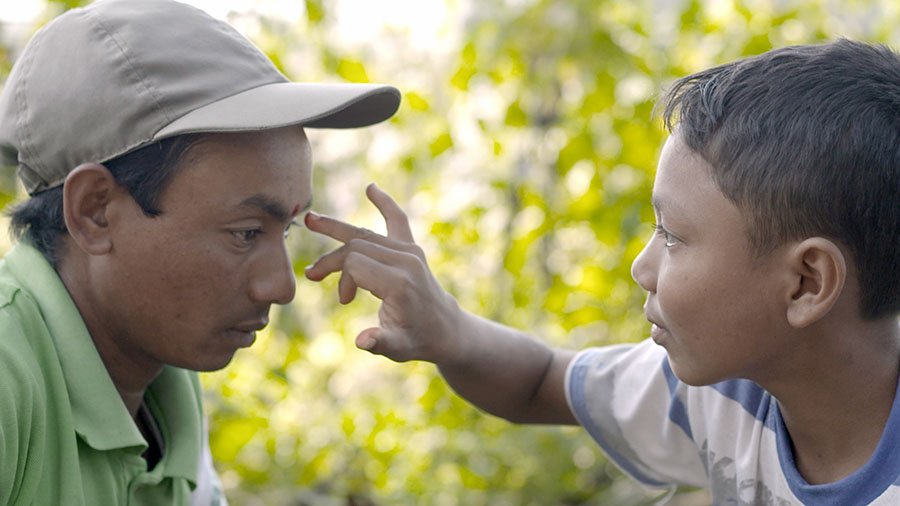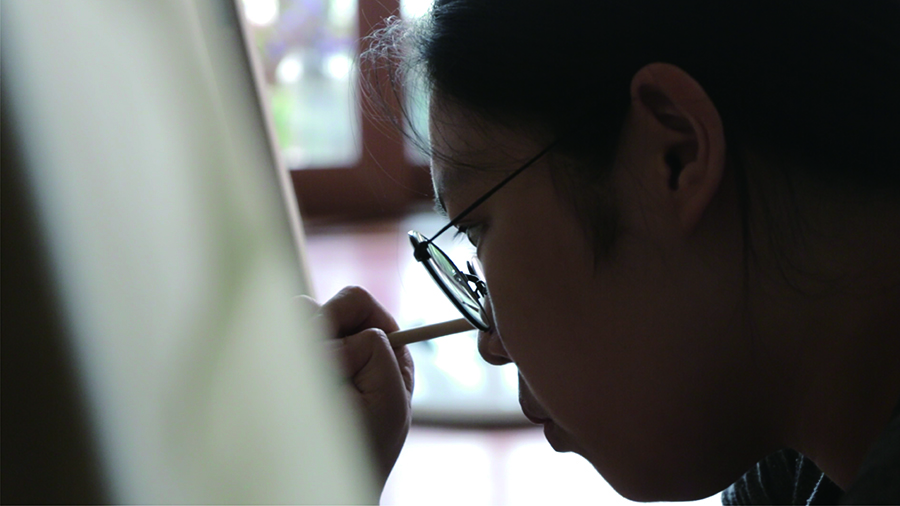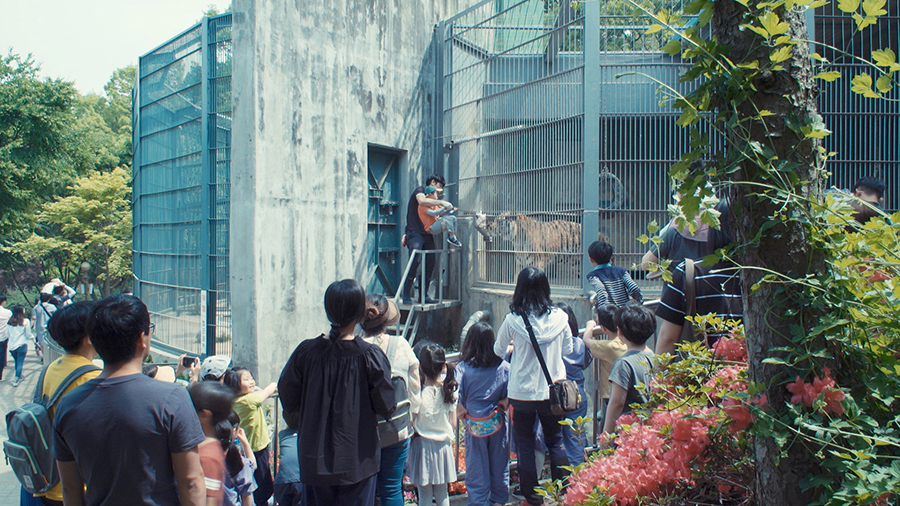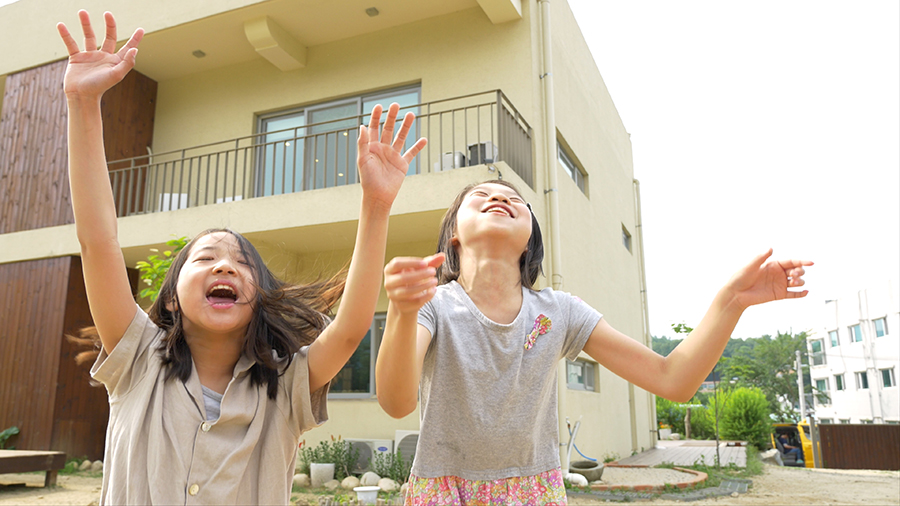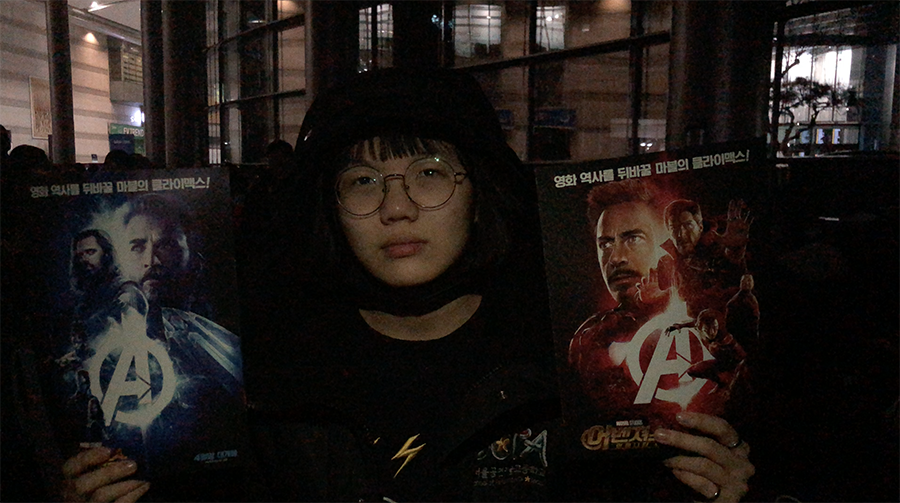International Competition
White Goose Award
Self Portrait: Sphinx at 47 km
- China
- 2017
- 94min
- G
- ProRes HQ
- color
The village '47km' is in the Hubei province of China, the birthplace of the father of Zhang Mengchi born in 87, and is called by this name because it is 47 km away from Xīzhōu. Her father left the village at the age of twenty but her grandfather still lives there. For the past eight years, she has produced seven self-portrait documentary series about the village. The film begins by sheding light on the dilapidated wall with the obscure graffiti, "Only OOOism can save China". This starting point is a point of reflections where many layers of time, ideology, space, generation, and history overlap. The generation to disappear and the young generation to bear the future encounter in front of this wall. An old woman tells about her dead son and the history of the country, and a girl plays around the wall against the sun, draws pictures, and dreams. The conversation of women of two generations, created by a woman director and cameras, takes place in poetic scene and cinematic language. The documentary captures the moments when personal things become political and historical. [JEONG Minah]
Director
-
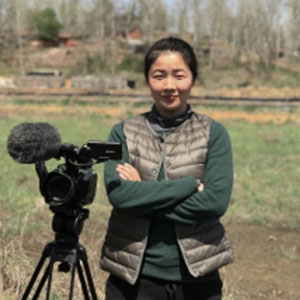
ZHANG Mengqi
Self Portrait: Birth in 47 km (2016)Self Portrait: Dying at 47 km (2015)Self Portrait: Building a Bridge at 47 km (2014)Self Portrait: Dreaming at 47 km (2013)Self Portrait: Dancing at 47 km (2012)
Credit
- ProducerZHANG Yan
- Cinematography ZHANG Mengqi
- Editor ZHANG Mengqi
- Music ZHANG Mengqi
- Sound ZHANG Mengqi
Special Jury Award
The Wolf and the Seven Kids
- Russia
- 2017
- 52min
- 18 +
- DCP
- color
In a cabin located in the wood, there are a father and son. The camera keeps showing us the son. The distance between the camera and him is so close that we can only see some parts of his body, such as his face, hands, and legs. or some objects, such as the cup which he holds in his hand or some foods that he eats. All he ever does is murmur or howl instead of any spoken words. The voice which speaks throughout the film belongs to his father whose face is not shown to us. He lets his son wake up, change clothes, eat meals, tidy up the house, and then, it happens all over again. While there is no clue provided to us for what is going on, we somehow come to realize that the repetition itself matters to father and son. It is the mission and burden of the father to make those whole repetitive practices as a daily routine, and this precisely explains the reason of their isolation. The camera captures only parts of the body or other objects, instead of delivering overall description of the space in which the routine is practiced. Thus, the isolation, pressure, and anxiety shared between the two are passed onto us in a most effective way. [Hwang Miyojo]
Director
-

Elena Gutkina
The Hole (2015) -
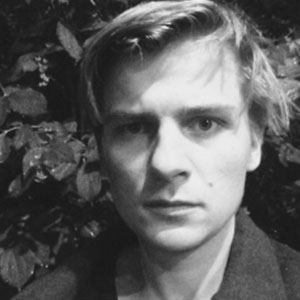
Genrikh IGNATOV
The Hole (2015)
Credit
- ProducerElena GUTKINA, Genrikh IGNATOV
- Cinematography Elena GUTKINA, Genrikh IGNATOV
- Editor Elena GUTKINA, Genrikh IGNATOV
- Sound Anna VOSKOBOYNIKOVA
Jury Special Mention
Aleppo's Fall
- Norway, Denmark, France
- 2017
- 85min
- 15 +
- DCP
- color
The director, a refugee in Norway, born in Aleppo, the biggest city during Syria returns to the city in the civil war to record his life in the front line with the rebel, FSA (Free Syrian Army) and insides of the rebel army. His decision for this dangerous journey was led by both the hope he had at the time of Arab Spring and the despair thereafter. Syria has already moved itself far from the ‘Spring’ and the problems and situations arise within the rebel itself as well as in the battlefield in which they confront the regime’s army. His biggest concern nurtured in the midst of all these complicated circumstances is not on the exploration of status quo, but on the naive or rather basic question of the reason why all these perils were created, and whether one could still have hope. His inquiringly skimming camera finally finds someone to fixate its gaze on. The future of Syria and this film is thus put toward to the one along with the director’s question, “What kind of story do you think I should tell in this film?” The question, however, ends up being unanswered, and the Aleppo’s fall is captured from the camera situated far away from the rebel. The voice-over narrated by the director, on his way out of the city, leaves us a tone full of knotty remorse. [Hwang Miyojo]
Director
-
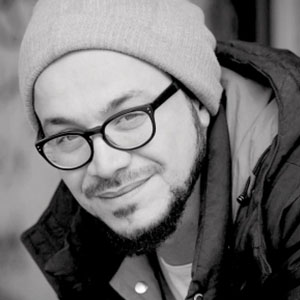
Nizam NAJAR
Diary from the Revolution (2011)
Credit
- ProducerHenrik UNDERBJERG
- Cinematography Nizam NAJJAR, Bader TALEB
- Editor Torkel GJØRV
- Music Mike SHERIDAN
- Sound Svenn JAKOBSEN
The Silence of Others
- Spain, USA
- 2018
- 97min
- 12 +
- DCP
- color
There are ones who had been tortured for participating in the student movement, murdered and buried in secret, or got his or her children snatched away for being rebellious; and all these happened during Franco’s authoritarian regime in Spain, The ones, who had suffered torture, homicide among family members, children kidnapping, remember all the pains engraved in their bodies and minds. The Amnesty Law, or the 'Pact of Oblivion,' however, has functioned to impede the settlement of past history ever since its installment in 1977. The film follows the people who have informed the injustice forged by the act, and organized the movement to let the political criminals—who had committed crimes against humanity—stand in court. There are still some people who would like to consider reconciliation as an act of ‘forgetting,’ and even stand forward to remember days of Franco’s regime in a much more glorified fashion. What the people—on which the film focus—try to maintain is that ‘forgetting’ is nothing like ‘forgiving’ and a proper remembering needs to come before any forgiveness. The extensive archive materials, exhibiting the anti-humane modes of governing during Franco’s regime and the history related to the settlement of past history, bring audiences plentiful reference points in understanding the issues that the film deals with. [Hwang Miyojo]
Director
-
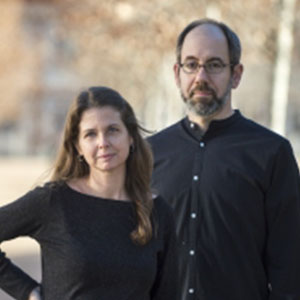
Almudena CARRACEDO, Robert BAHAR
[Almudena CARRACEDO]Made in L.A (2017)Welcome, a Docu-Journey of Impressions (2003) [Robert BAHAR]Made in L.A (2017)Meet Joe Gay (1999)Laid to Waste (1996)
Credit
- ProducerAlmudena CARRACEDO, Robert BAHAR
- Cinematography Almudena CARRACEDO
- Editor Kim ROBERTS
- Music Leo HEIBLUM, Jacobo LIEBERMAN
- Sound Steve MILLER
Asian Competition
Asian Perspective Award
The Family in Sinkhole
- China
- 2017
- 70min
- G
- DCP
- color
The largest sinkhole in Yunnan, China, that separated a patient with Hansen's disease from the outside world, is now ironically a rising tourist attraction. He Pingxiu was sent to this area in his 20s because of his Hansen’s disease. Unlike his 35-year-old son, Yang Xiuxiang, he remains skeptical about development. The authorities have abandoned and isolated Yang Xiuxiang’s mother, but send an assistant to help him with the development of the sinkhole. Although the mother and son threaten each other, she still cooks for him and he takes her to the hospital at the back of his motorbike. Inside the sinkhole, conflicts merge into the same landscape even as the mother and son raise their voices. There are pigs snorting loudly as they’re being transported. A fast-growing grandson shares a meal with his aging grandmother. The millstone means history for the mother and garbage for her son. He Pingxiu avoids the main road frequented by tourists. This bittersweet scene of redevelopment brings together their struggle for survival and years of isolation. [CHAI Heesook]
Director
-
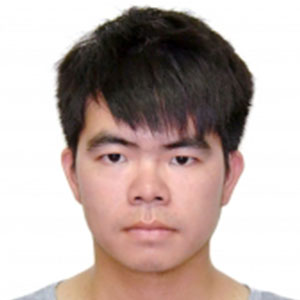
YAO Zubiao
The Family in Sinkhole (2017)
Credit
- Cinematography YAO Zubiao, ZHANG Mimi
- Editor ZHANG Zhongchen, LI Kan
- Sound Matthew MA
Jury Special Mention
Home Sweet Home
- Japan
- 2017
- 111min
- G
- DCP
- color
The film chronicles 35 years in the life of the director’s niece Nao, who suffers from epilepsy. A year after Nao was born, her doctor said she would not be able to live longer than 3~4 years. However, thanks to the loving care of her family, Nao at 43 remains healthy. Her positive disposition is effectively conveyed by the film’s bright and cheerful ambience and pace. Indeed, it’s difficult to assert that Nao and her family have led a happy life like ordinary people. Now in their old age, her parents face retirement, and this has caused new worries, tension and conflicts. The film is a private record of one family’s history. At the same time, it sends out a public message that urges attention and understanding with regards to people with intellectual disabilities. ‘Home’ has two meanings in this film. Not only is it a private space filled with affection and solidarity, but also it's a public space that embraces social minorities with warmth and care. Nao has two homes and she certainly needs them both. [LEE Dohoon]
Director
-
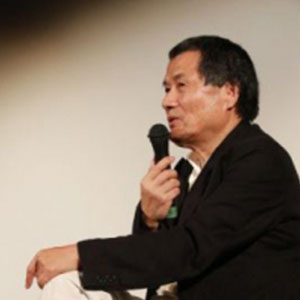
ISE Shin-ichi
Arigato (2006)
Piglets (2002)
Nao-chan (1995)
Credit
- ProducerISE Shin-ichi
- Cinematography ISHIKURA Ryuji, SEGAWA Junichi, MIYATA Hachiro
- Editor OJIRI Koichi
- Sound YONEYAMA Kiyoshi
Korean Competition
Best Korean Documentary Award
Under Construction
- Korea
- 2018
- 89min
- G
- DCP
- color
A man working at a construction site experiences joy, anger, sorrow, and happiness as if going through an entire lifetime. Proud that his labor contributes to the welfare of society, he connects labor with life. We're remined of the values advocated by the Saemaul Movement. The journey made by the director to visit places from his father's past overlaps with the history of Korea’s urban development and industrial growth. His father became a tool for the country’s economic development. Yet, being a typical parent of the time he sacrificed everything for his family and like other laborers, was never guaranteed a quality of life. The director now hopes to restore the life of his father who confuses his private life with his role as a pillar of industry. To this end, he explores not just superficial memories but also regrets buried deep inside the heart. The film portrays the subtle emotional changes that the director goes through along the way. This painful story retains warmth thanks to the director’s thoughtful gaze towards his family. [Suan SEOL]
Director
-
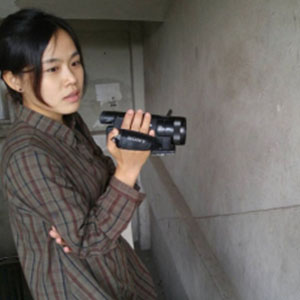
JANG Yunmi
Anxiety of Concrete (2017)
The Old Lotus (2015)
Mom Goes into Her Room (2014)
His Mind (2012)
Credit
- Cinematography 장윤미 JANG Yunmi
- Editor 장윤미 JANG Yunmi
- Sound 정성환 JUNG Sunghwan
Special Jury Award
Glow Job
- Korea
- 2018
- 81min
- 12 +
- DCP
- color
The Cruising Spot is both a space that can reveal people's identity and a secret space, and also has both inner and outer meaning. The film explores the ambivalence of the Cruising Spot in the physical space, especially in theaters. The paradox of images that can only be seen in the dark, the publicness experienced inside and the simultaneous occurrence of viewing and being viewed are similar to what sex minorities experience in society in a sense. Is the situation where the physical place disappeared and replaced with a virtual space that the thing that happened outside moved to the inside? Dark and light, the external part viewed from inside or the internal from outside. The film speaks of the confrontation and interpenetration of the two concepts. The process of recording the performer's body and voice and that in which the record is shown, they make the viewers experience their interpenetration. The virtualization of physical spots could be a simultaneous representation of many properties apparently different but actually overlapping. [Suan SEOL]
Director
-

IM Cheolmin
B-inb B-ing (2016)
PRISMA (2013)
Golden Light (2011)
Secret Garden (2010)
Credit
- Producer김상숙 KIM Sangsook
- Cinematography 임철민 IM Cheolmin
- Editor 임철민 IM Cheolmin
- Music Last bus
- Sound 임철민 IM Cheolmin
Jury Special Mention
Log Book
- Korea
- 2018
- 90min
- G
- DCP
- color
Four years on, the Sewol Ferry disaster remains a collective trauma left deep inside the minds of many. Although most people have by now gone back to their daily lives, there are those who still find it difficult to recover from it – the bereaved families of the victims, the survivors and the divers who retrieved the bodies of the victims. Log Book is a record of the four years following the tragedy that the civilian divers have gone through. Through the on-site footage shot over 70 days, the divers’ logbooks and interviews with 15 civilian divers, the film tells the story of those who suffer precisely because of what everyone insists we must remember. They were the first to discover the victims and witnessed death at close hand. But is that the only reason why they can’t escape from the prison of memories? Just like the bereaved families of the Sewol disaster victims, perhaps they too suffer for a long time because of the insensitivity, incompetence and irresponsibility of the system? Log Book reminds us of a question that should never be forgotten. [BYUN Sungchan]
Director
-
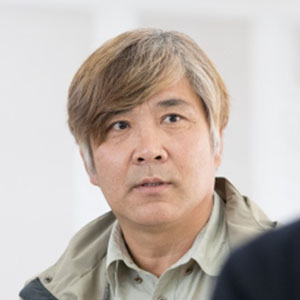
BOK Jinoh
Dolpin Jedol's Blue Way Home (2013)
We are All Tuvaluans (2010)
Credit
- Producer정희태 JUNG Heetae
- Cinematography 복진오 BOK Jinoh
- Editor 현진식 HYUN Jinsik
- Sound 박동주 PARK Dongju
Special Award
Brave New Docs Award
Elephant Boy
- Korea
- 2018
- 52min
- G
- DCP
- color
"Chris, an 12-year-old boy living in Chitwan, southern Nepal, tags along with his father, Krishna, who is an elephant trainer, and stays by the elephants all day long. It gives him the greatest pleasure to feed and bathe the elephants, and when a baby elephant is born he can’t care less about school. His father learned his skills from his own father, and so it seems likely that Chris too will become an elephant trainer soon. However, elephant trainers are constantly exposed to grave dangers that could cost them their lives, and receive very little economic or social rewards for their hard work. Therefore, Chris's father doesn’t seem happy about his dream. The Elephant Breeding Center, originally set up to protect elephants, now uses elephants as a means of entertainment rather than ensuring their safety and co-existence. The annual Elephant Festival, which attracts over 500,000 visitors, needs more and more elephants. As they keep only female elephants that are easier to train and drive male elephants out into the wild, the male elephants linger around the center in search of their families. The sacred animals of Hinduism learn to submit and give up, their ankles bound by chains. They must play ‘the elephant soccer’ to make profit for men. The trainers whose job secrity depends on the outcome of the game treat the elephants more and more harshly. It nearly stops our breath to see that those owning the elephants and supporting the soccer game are all foreigners.
Director Park Hwansung met them for the first time in 2011, and after multiple meetings completed his project The boy and the Elephant, which was introduced on TV. The director couldn’t forget them however, and secured a production budget through Asian Pitch, a program launched by public broadcasters in Korea, Japan, Singapore and Malaysia to provide support for outstanding Asian projects. He visited them again in 2016, and found that the elephants were still being harshly trained for tourism. The trainers had no choice but to pick up their whips, and Chris who’d grown up so much was still with them.
Park meant to make another trip in 2017 and put his works together but unfortunately the plan was never realized. The film Elephant Boy nearly disappeared altogether. Thanks to the help and support from the late director’s friends, family, and colleagues, the film was later completed. Under the heavy weight of sorrow and responsibility, they must’ve spent many a sleepless night trying to fulfill the hopes and dreams of the late director. He was ever so difficult to please, so I wonder how he would have responded to the film. [HAN Kyungsu] "
Director
-
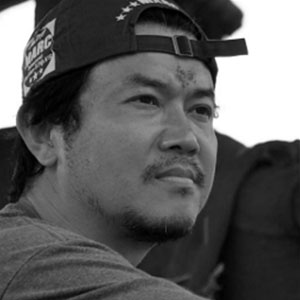
PARK Hwansung
Park Hwan-sung majored in biology and video production. He has focused on making environmental documentaries for more than 10 years. His works have been aired on KBS, EBS, etc. His major works include Black Kite (2004), A Baby Lemur of Madagascar (2007) and Sad Pierrot (2010). Park also made Malawi, The War for Water which won the best picture in the independent production category of the 22nd Korea PD Award.
The Shadow of Sundarbans (2012)
Wanderers of Kalahari, Meercat and Bushmen (2010)
Malawi, War for Water (2009)
The Pilgrim of Tundra, Caribou (2008)
Lemurs of Madagascar (2007)
Black Kite (2004)I
n the Name of the Father (2016)
The Secret of Survival (2015)
A Secret Desire, Lion Hunt (2013)
Credit
- Producer진모영 JIN Moyoung
- Cinematography 박환성 PARK Hwansung
서종백 SEO Jongback
박훈 PARK Houn - Editor 현진식 HYUN Jinsik
- Music Voight-Kampff
- Sound 현진식 HYUN Jinsik
Beautiful New Docs Award
The Evanescent Relief
- Korea
- 2018
- 74min
- G
- DCP
- color
What message can we draw from a story about someone overcoming an incurable disease? The Evanescent Relief hopes to answer this question by depicting a protagonist who battles a disease throughout her adolescence and tries to regain her place in family and society. For Jeongseok, who is unable to continue her education even though she is fully recovered, painting becomes her own way of observing her family and surroundings. While she paints her family members as tigers, she reveals her concerns about her role within her family. Not only does she want to help her family but she also hopes to reach out to other patients in the form of social care. Jeongseok makes us realize the fundamental social value of ‘care’ whereby the members of society rely on one another. Mature beyond her years, her deep consideration adds depth to the story about her recovery, and the film reflects upon the attitude of media that treats patients with incurable diseases as ‘outsiders’. We're led to wonder about the social perspective that produces outsiders aa well as the meaning of true care. [Suan SEOL]
Director
-

RYU Hyungseok
The Evanescent Relief (2018)
Credit
- Producer류형석 RYU Hyeonuk
- Cinematography 류형석 RYU Hyungseok, 정태호 JEONG Taehoe
- Editor 류형석 RYU Hyungseok
- Sound 표용수 PYO Yongsoo
Emerging Documentary Filmmaker Award
Garden, Zoological
- Korea
- 2018
- 97min
- G
- DCP
- color
There are not many people who think zoo animals are happy, but here are some people who are dedicated to improving the happiness of the animals. They are veterinarians and zookeepers at the zoo. The film focuses on the zoo staffs who work at the Cheongju Zoo and deals with the life and death of the animals they care for. Their daily routine is filled with big and small tasks, including cleaning cages, breeding of endangered species, care and surgery, and determining emission and euthanasia. The film observes the back of the zoo, which is invisible to spectators, with a delicate and warm gaze. Despite the dedication of zoo staffs, zoo animals are not happy. For the wild animals who "do not give them a heart while meeting every day," they look for ways to send these animals back to nature. However, they have no option but to be left as animals on display because they can not survive in the wild and they are domesticated. In the latter half, when the archiving footage is presented about the life of the tiger 'Bakramee', who was born in the zoo and lived there for a lifetime, the film conveys a pathetic atmosphere. [KANG Sowon]
Director
-
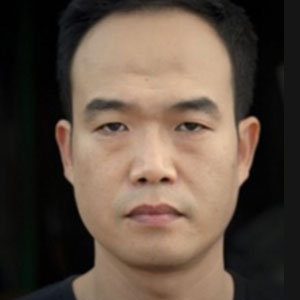
WANG Mincheol
Credit
- Producer이왕형 LEE Wanghyung
- Cinematography 왕민철 WANG Mincheol
- Editor 안지환 AHN Jeehwan
- Music RAINBOW99
Audience Award
Audience Award
The Evanescent Relief
- Korea
- 2018
- 74min
- G
- DCP
- color
What message can we draw from a story about someone overcoming an incurable disease? The Evanescent Relief hopes to answer this question by depicting a protagonist who battles a disease throughout her adolescence and tries to regain her place in family and society. For Jeongseok, who is unable to continue her education even though she is fully recovered, painting becomes her own way of observing her family and surroundings. While she paints her family members as tigers, she reveals her concerns about her role within her family. Not only does she want to help her family but she also hopes to reach out to other patients in the form of social care. Jeongseok makes us realize the fundamental social value of ‘care’ whereby the members of society rely on one another. Mature beyond her years, her deep consideration adds depth to the story about her recovery, and the film reflects upon the attitude of media that treats patients with incurable diseases as ‘outsiders’. We're led to wonder about the social perspective that produces outsiders aa well as the meaning of true care. [Suan SEOL]
Director
-

RYU Hyungseok
The Evanescent Relief (2018)
Credit
- Producer류형석 RYU Hyeonuk
- Cinematography 류형석 RYU Hyungseok, 정태호 JEONG Taehoe
- Editor 류형석 RYU Hyungseok
- Sound 표용수 PYO Yongsoo
Youth Competition
Best Award
Playing Children
- Korea
- 2018
- 24min
- G
- DCP
- color
We have the most fun when we play. That’s just the way it is. However, as we grow older we push aside the fun of playing and only regard it as a reward for a special occasion. The director of Playing Children has decided to capture on camera scenes of children playing. It’s pointless to research and explain the reason why flowers are beautiful. It’s best to show them directly. Children play enthusiastically everywhere, find toys in anything, come up with new games, and step into a world of imagination. The film proves that a depiction of their innocent energy is itself a valuable work. The analyses and opinions of grown-ups inserted in the middle of the film seem to come from a high watchtower. It’s higher up from the ground where children are playing, which makes us slightly dizzy at first. Yet, the difference in height reminds us once again of the importance of playing. The narrator stands between the children on the ground and the grown-ups on the high watchtower. What is going through the director’s mind as the camera observes the two places? [AHN Seulki]
Director
-
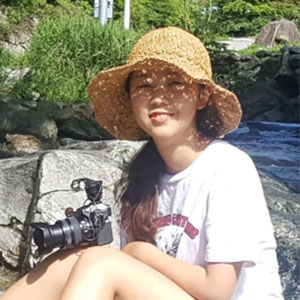
KIM Soohyun
Playing Children (2018)
Credit
- Producer김수현 KIM Soohyun
- Cinematography 김수현 KIM Soohyun
- Editor 김수현 KIM Soohyun
- Sound 김수현 KIM Soohyun
Excellence Award
Walk Under the Glare of the Moon
- Korea
- 2018
- 13min
- G
- DCP
- color
This short documentary about ‘fandom’ among teenagers vividly depicts the way they wait up all night just to get a glimpse of the stars visiting Korea in time for the release of Avengers: Infinity War (2018). During the long wait, they record themselves, and when they finally meet the stars, they take selfies with them as proof of existence to be shared proudly among the fandom. However, teachers do not approve of the fandom culture, whereby kids ‘worship’ celebrities. To grown-ups, it seems like a waste of time to wait for stars and such brief encounters with celebrities do not mean much. What they do not realize however is that the kids are enjoying the fandom culture with their peers instead of blindly following stars. Those who enjoy popular culture have been and will always be enthusiastic about pop icons. Years later, they will cherish their memories of the culture they shared together. [PARK Busik]
Director
-

KUEM Jungyun
Walk Under the Glare of the Moon (2018) -

SONG Dawon
Walk Under the Glare of the Moon (2018)
Credit
- Producer금정윤 KUEM Jungyun
송다원 SONG Dawon - Cinematography 송다원 SONG Dawon
- Editor 송다원 SONG Dawon
- Music 송다원 SONG Dawon
- Sound 금정윤 KUEM Jungyun
